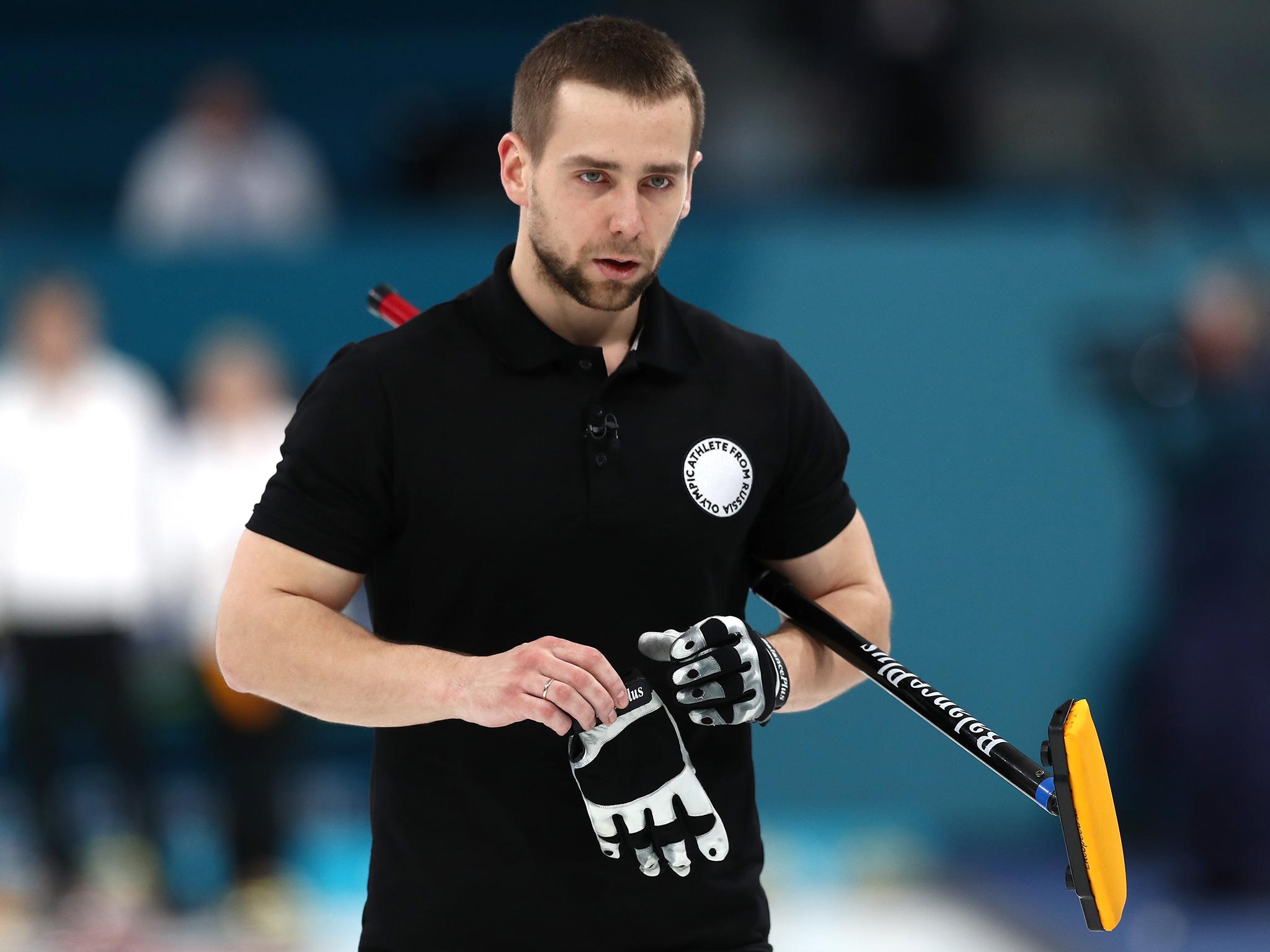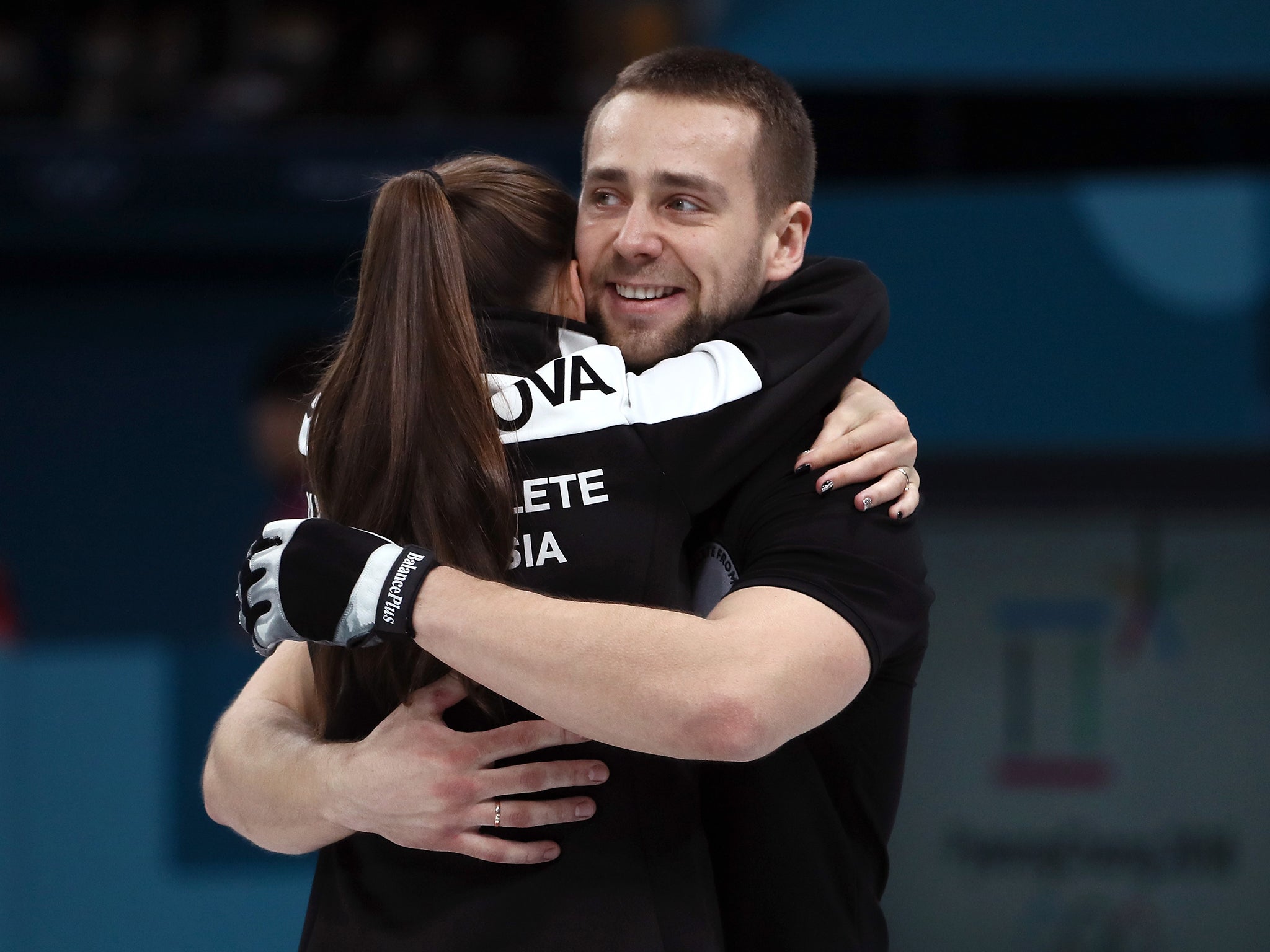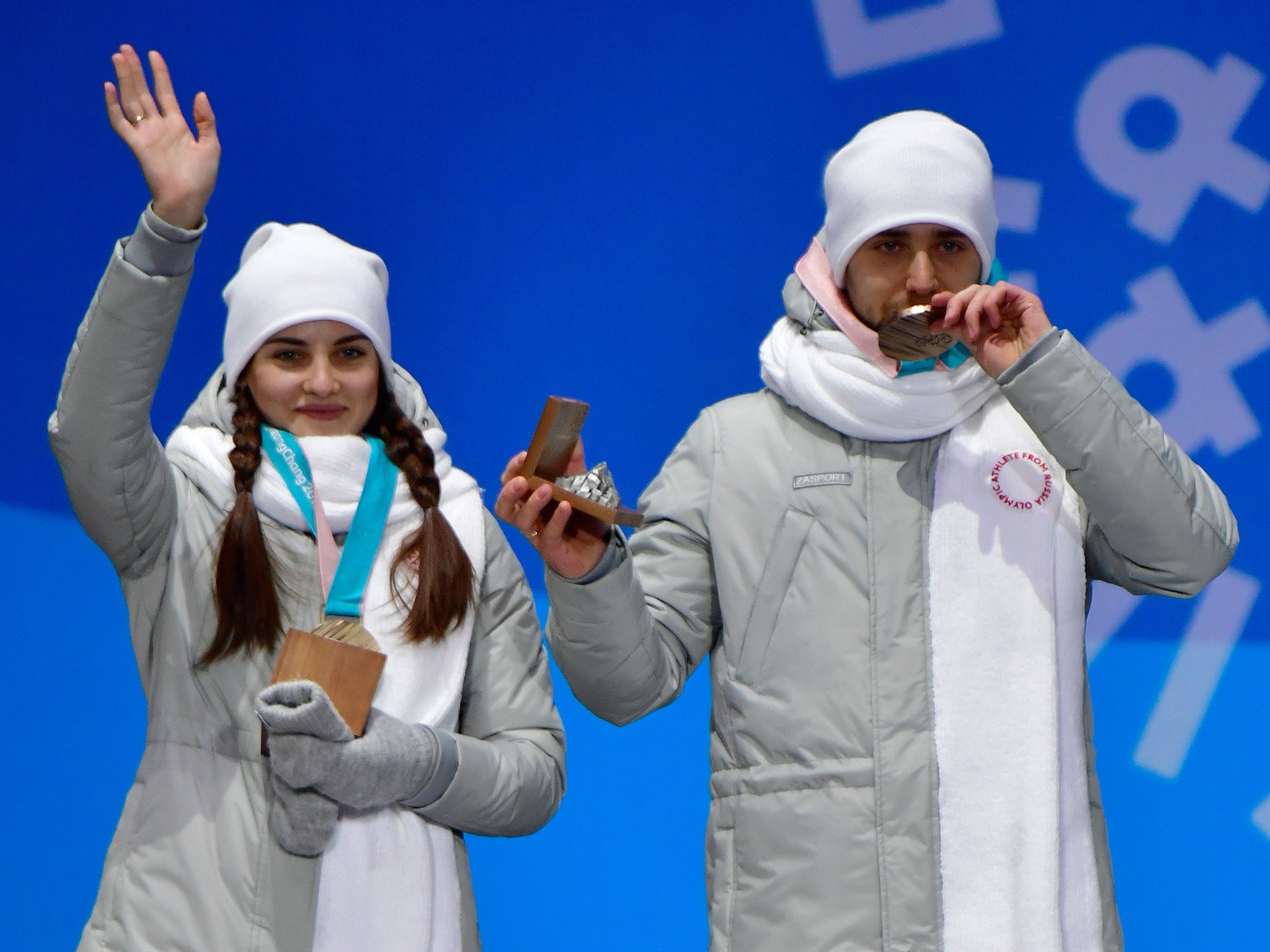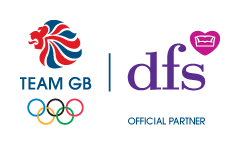Winter Olympics 2018: Russian curler Alexander Krushelnitsky faces anti-doping case, Cas announces
Olympic Athletes from Russia face losing their bronze medal in the mixed doubles after Krushelnitsky allegedly tested positive for the banned substance Meldonium

Your support helps us to tell the story
From reproductive rights to climate change to Big Tech, The Independent is on the ground when the story is developing. Whether it's investigating the financials of Elon Musk's pro-Trump PAC or producing our latest documentary, 'The A Word', which shines a light on the American women fighting for reproductive rights, we know how important it is to parse out the facts from the messaging.
At such a critical moment in US history, we need reporters on the ground. Your donation allows us to keep sending journalists to speak to both sides of the story.
The Independent is trusted by Americans across the entire political spectrum. And unlike many other quality news outlets, we choose not to lock Americans out of our reporting and analysis with paywalls. We believe quality journalism should be available to everyone, paid for by those who can afford it.
Your support makes all the difference.The Court of Arbitration for Sport’s [Cas] anti-doping division has confirmed that it has begun proceedings against Russian curler Alexander Krushelnitsky after he allegedly tested positive for the banned substance Meldonium.
Krushelnitsky, who has left Pyeongchang after claiming the bronze medal in the mixed doubles alongside his wife Anastasia Bryzgalova, is awaiting the results of his B sample before a violation can be confirmed.
The substance is the same one that Russian tennis player Maria Sharapova tested positive for in 2016, resulting in a 15-month ban from the sport. It increases blood flow, improves exercise capacity and is favoured by endurance athletes, although its benefits in curling are thought to be at a minimum given the low intensity of the sport.
The news could come as a major blow to Russia’s hopes of rebuilding its reputation following the state-sponsored doping scandal, with the nation currently banned from the 2018 Winter Olympics. Russian competitors have been allowed to compete providing they have a clean drug history, and must compete under the ‘Olympic Athletes from Russia’ [OAR] banner.
A Cas statement issued on Monday morning read: “The Cas ADD [anti-doping division] has initiated a procedure involving the athlete Alexander Krushelnitsky (mixed curling; OAR).”
Despite the allegations, Russian Olympic delegation spokesman Konstantin Vybornov labelled the situation “simply nonsense”, given that curling is the least physically taxing sport at the Winter Olympics with curlers benefitting the least from doping effects.
The news was also met with bemusement by Russian curling federation president Dmitry Svishchev.
“I have known these guys for many years,” said Svishchev. “Only a crazy person takes banned substances before a competition, before the Olympics. It’s a strange story. It raises a lot of questions.”
A statement from a spokesman of the OAR team said on Sunday: “Today, the headquarters of our delegation received an official notification from the IOC about a possible violation of the anti-doping rules.”

The International Olympic Committee [IOC] will not confirm the identity of the athlete in question until the B sample is analysed, a process that is due to be carried out on Monday.
“We do not call the name of the athlete, as well as the sport prior to the results of the opening of sample B, which will become known within 24 hours,” read an IOC statement.
“However, we take note of the statement by a spokesperson of the Olympic Athlete from Russia [OAR] delegation,” an IOC statement read.
“On the one hand it is extremely disappointing when prohibited substances might have been used, but on the other hand it shows the effectiveness of the anti-doping system at the Games which protects the rights of all the clean athletes.
“If the case is confirmed, it will be considered by the OAR implementation group – chaired by IOC executive board (EB) member Nicole Hoevertsz – which will report to the IOC EB at the end of the Olympic Games.”

Krushelnitsky has not responded to a request for comment, and if he and wife Bryzgalova are stripped of their bronze medal, Norway will inherit third place as a result of OAR’s disqualification.

Join our commenting forum
Join thought-provoking conversations, follow other Independent readers and see their replies
Comments